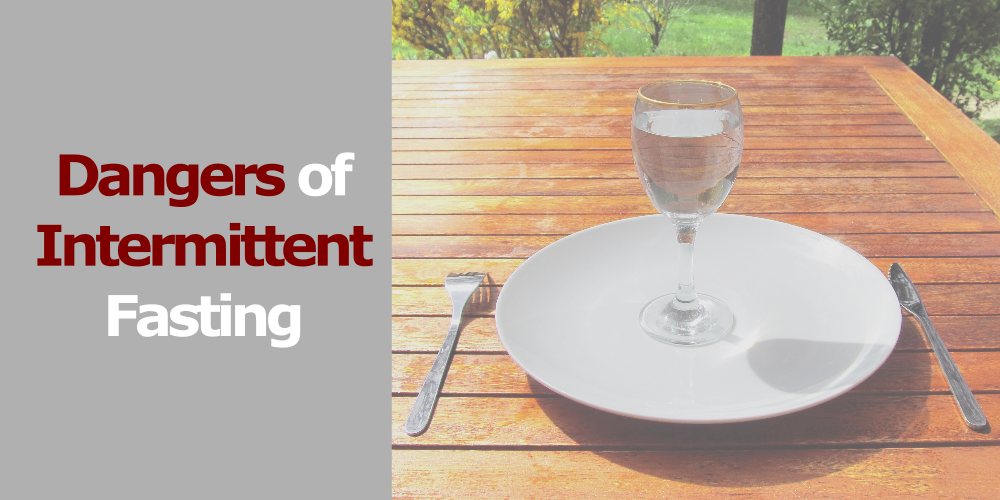The Dangers of Intermittent Fasting: Is Intermittent Fasting right for you?
This post gives you an overview on intermittent fasting and whether this fat loss protocol is right for you.
What is Intermittent Fasting?
Intermittent fasting is where you put your body into a fasted state for anywhere between 14-20 hours. A sample fast would be, your last meal at 6 pm in the evening and you wouldn’t eat until Noon the next day . If you are intermittent fasting the best time to workout is hour before you break the fast. The example above this would be between 11am – noon. The goal of this short fast is for health benefits and improved fat utilization.
Note: Women may to better on a 14 hour fast. Fasting longer can disrupt the hormones. More on this below.
With anything, there are usually benefits and risks. Here is an outline both the risks and benefits of Intermittent fasting.
Benefits:
- Autophagy: Cellular repair and clean up. To quickly summarize, this is the process where you body destroys damaged cells with it’s own cellular enzyme. See more.
- Improving Blood Sugar: by lowering glucose and increasing Insulin Sensitivity (inverse relationship to insulin resistance) and leptin sensitivity
- Lower Glycation: the fasted state decreases blood and liver glycation
- Reduces Oxidative Stress
- Decreases Triglyceride Levels and LDL cholesterol
- Stresses cells to make them more resilient
- Increased Fat Burning: though increased fatty acid oxidation, because of decreased glucose.
Risks:
- Stress on the Adrenals
- Stress on the Thyroid
- Hormone Disruption
Because of the above risks you should only intermittent fast if the following are healthy:
1. Adrenals (How to tell if your Adrenals are Healthy)
2. Thyroid (How to tell if your Thyroid is Healthy)
3. Blood Sugar (How to tell if your Blood Sugar is Balanced)
Women Fast Differently (this might upset you but it’s true)
Male and female hormone levels are different. As a result if you have a typical female hormone profile you will need to approach fasting a little different. Fasting for a long period of time can be very disruptive for female hormones.
How to still get the benefits of Intermittent fasting while also saving your hormones:
- Don’t fast for longer than 14 hours.
- Don’t fast for consecutive days. Only a 2-3 days a week and not two in a row.
- Keep your workouts less intense on Fasting days. Do yoga or light cardio. Save the HIIT and crossfit for non-fasting days.
Bulletproof Intermittent Fasting
Dave Asprey over at Bulletproof Executive has a post “Bulletproof Intermittent Fasting Protocol”. On the Bulletproof fast instead of going without food completely. In the morning you have a bulletproof coffee. (If you are new to bulletproof coffee read our post here.)
Dave says the added benefits of bulletproof coffee allows your fast to be more effective and easier. By consuming the fat in the coffee you allow your body to burn ketones for energy without breaking the fast.
This fast might be easier for some because the fat in the coffee will prevent you from getting hungry. You get hungry and agitated because your stomach releases the hormone ghrelin when the body wants nutrients. Ghrehlin goes to the brain where it signals your body to eat. In addition to the ghrelin being released, Cholecystokinin, is the hormone that makes you feel full. When you are fasting your brain thinks you are starving to death and stops your body from producing much of the hormone. You don’t feel full and the cravings begin. With this your body senses a lack of fuel so it goes into fight mode and starts to secrete adrenaline and cortisol to raise insulin and blood sugar levels. You can reset Ghrehlin and Cholecystokinin by entering into ketosis. Bulletproof coffee is designed to get the body to enter this state faster. If you need a run down on Ketosis check out our post here.
Try fasting and let us know your thoughts.
Peace Out, Fast On,
DYBP

Leave a Reply